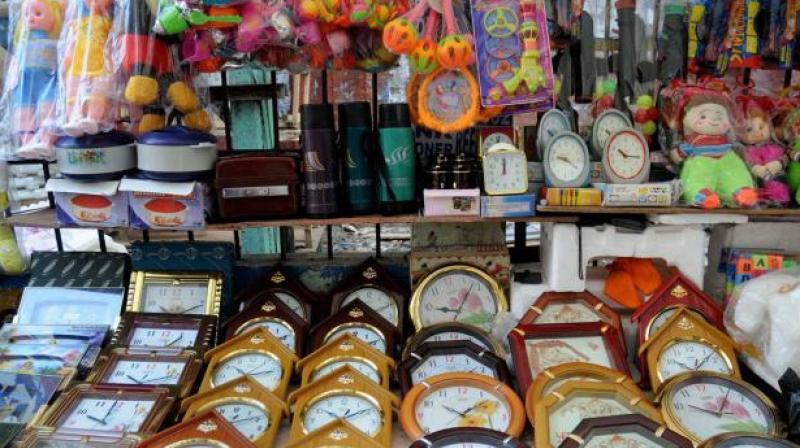Hyderabad: Industry against boycott call of Chinese products

Hyderabad: The call given by the Confederation of All India Traders (CAIT) to boycott Chinese products by increasing the import duty by 500 per cent has not met with the approval of industry, which believes that India cannot ruin its relationship with China for such sentimental reasons. CAIT wants to ban Chinese imports because China supports Pakistan.
With the onset of the festival season, such sentimental boycott calls only create a lot of noise but do not work at the ground, as consumers look more at the price of a product than the country in which it is made.
Chinese products have become inevitable in our day-to-day life. From needles to toys, electronic gadgets to hot water bottles, cellphones and televisions to crackers, car components, textiles, garments and more, they have been in the market for some time and are eagerly bought by consumers with tight budgets. Chinese-made products are 10 per cent-70 per cent cheaper than Indian goods.
Professor Sudhakar Rao, director of the non-profit Institute of Chartered Financial Analysts of India (ICFAI), said banning Chinese products will affect India more than China.
“India’s imports from China form around 3 per cent of China’s overall exports. Hence, any attempt to stop import of Chinese goods is not going to monetarily hit China much. In 1991-92 and 1992-93, India ran a trade surplus with China (its exports to China were more than its imports from China) and since then it has been running a trade deficit, which has exploded in the last 15 years. In 2017-18 the imports have increased to $ 76.4 billion from China. Hence, such a demand is not practical and will not help the Indian economy” Prof. Rao reasons.
Traders insist that they can make consumers more aware of the need to buy Indian products. Industrialist Devendra Surana says, “We have noticed that an earlier call for boycott did create awareness and there has been a shift in 20 to 50 per cent of the products across all sections of society. In festival products there is definitely a shift as most of them are opting for products made in India even if they have to pay a little extra.”
Retailers say that only 10 per cent of buyers ask from where the product is sourced or check where it has been made. The rest only look at the price.
A senior professor in a management university said, “The imports from China are out of free will where the value for money in terms of better quality and price is important. It is a matter of choice and those who want to buy these goods can’t be told to not do so. Raking it up into a sentimental issue will not help in any way.”

